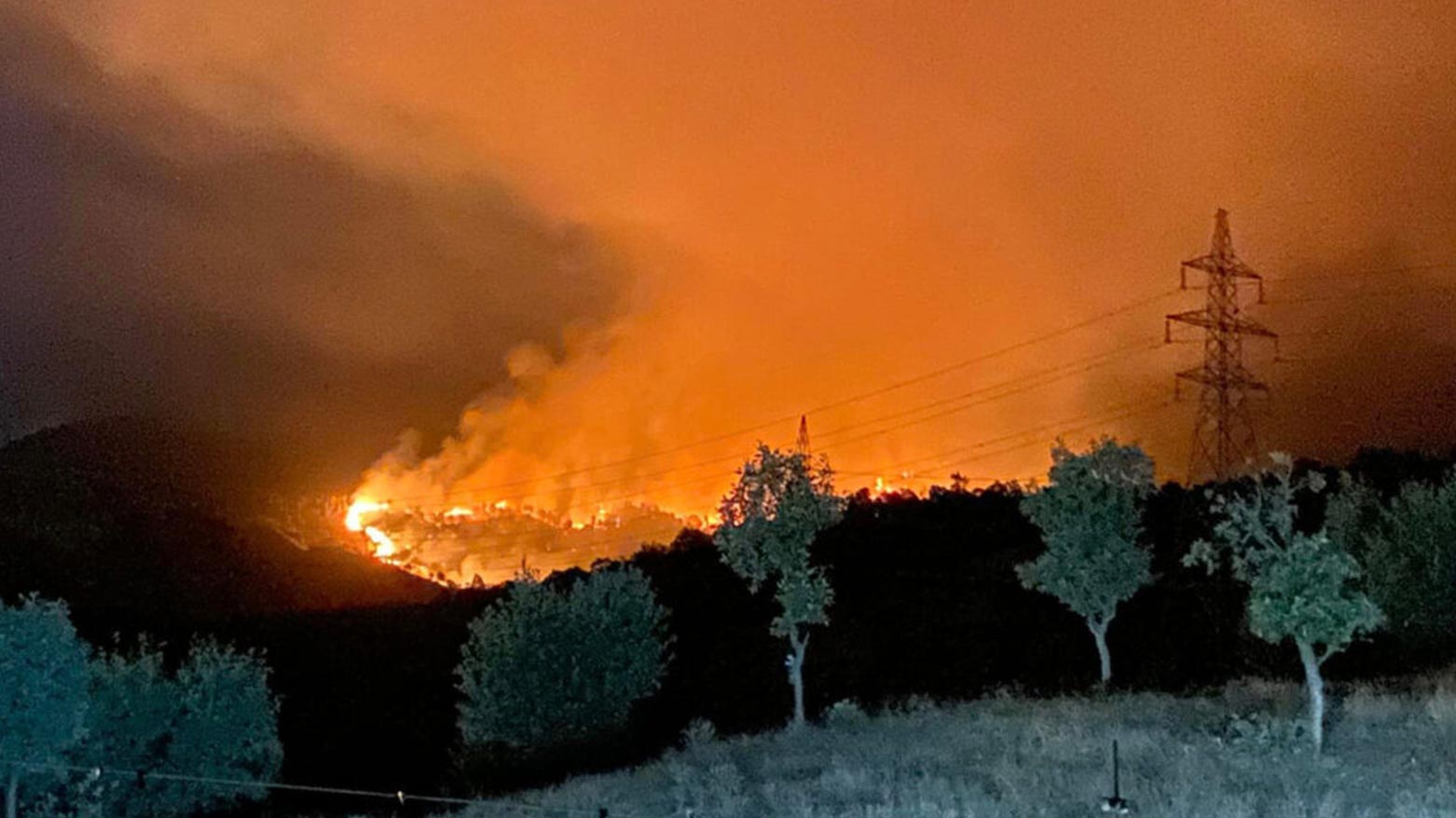PAX report highlights wildfires in Kurdistan Region amid escalating conflict
According to PAX’s analysis, approximately 7% of the burned land in the Kurdistan Region is likely a direct result of conflict events, with most attributed to Turkish airstrikes or shelling targeting PKK positions in the mountainous areas.

ERBIL (Kurdistan24) – A new report by the Netherlands-based organization PAX has shed light on the devastating wildfires that swept through the Kurdistan Region during the summer of 2024, highlighting the intertwined impacts of armed conflict, environmental degradation, and climate change.
The report underscores that the thick smoke and flames often seen amidst the forested Zagros Mountains this past summer were largely the result of airstrikes and artillery shelling as tensions between Turkey and the Kurdistan Workers' Party (PKK) reignited. This intensification of hostilities has forced thousands of civilians to flee their homes, leaving behind livelihoods and communities devastated by the decades-long conflict.
PAX warned that the ongoing war not only exacerbates the humanitarian crisis but also poses a significant threat to the region’s biodiversity.
The report also highlighted the recurring nature of conflict-induced wildfires in the region during spring and summer. Rising temperatures, coupled with the already dry and hot summer climate, make vegetation highly susceptible to fire. Although wildfires in the Kurdistan Region have natural and human-made causes — such as lightning strikes, agricultural practices, and recreational incidents — a substantial proportion of the burned areas were linked to military activities.
According to PAX’s analysis, approximately 7% of the burned land in the Kurdistan Region is likely a direct result of conflict events, with most attributed to Turkish airstrikes or shelling targeting PKK positions in the mountainous areas.
The report emphasized that this environmental destruction, compounded by climate change, threatens not only local biodiversity but also the livelihoods of communities dependent on the land for agriculture and sustenance.
Bolstered by its advanced drone industry, Turkey has ramped up its drone strikes in recent years, particularly in the urban centers of Iraq and the Kurdistan Region, to target suspected PKK positions.
Kurdistan Region officials regularly call on Baghdad, officially in charge of border security affairs, to prevent insurgents and foreign militaries from engaging in hostilities within its territory. Officials have voiced concerns about the increasing presence of foreign militia forces in the area.
Much of the conflict has been fought in the border areas of the Kurdistan Region, which has endangered civilian populations.